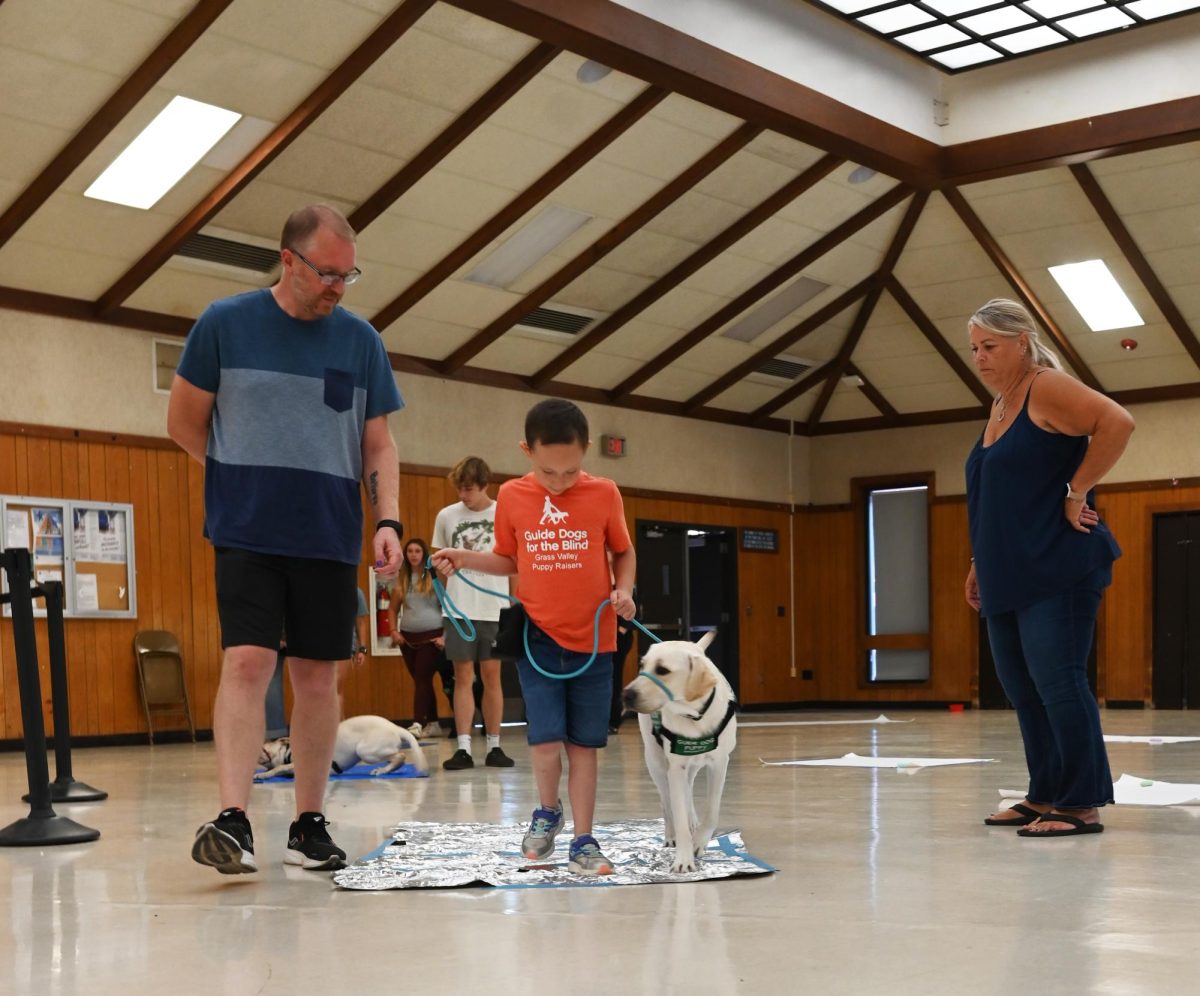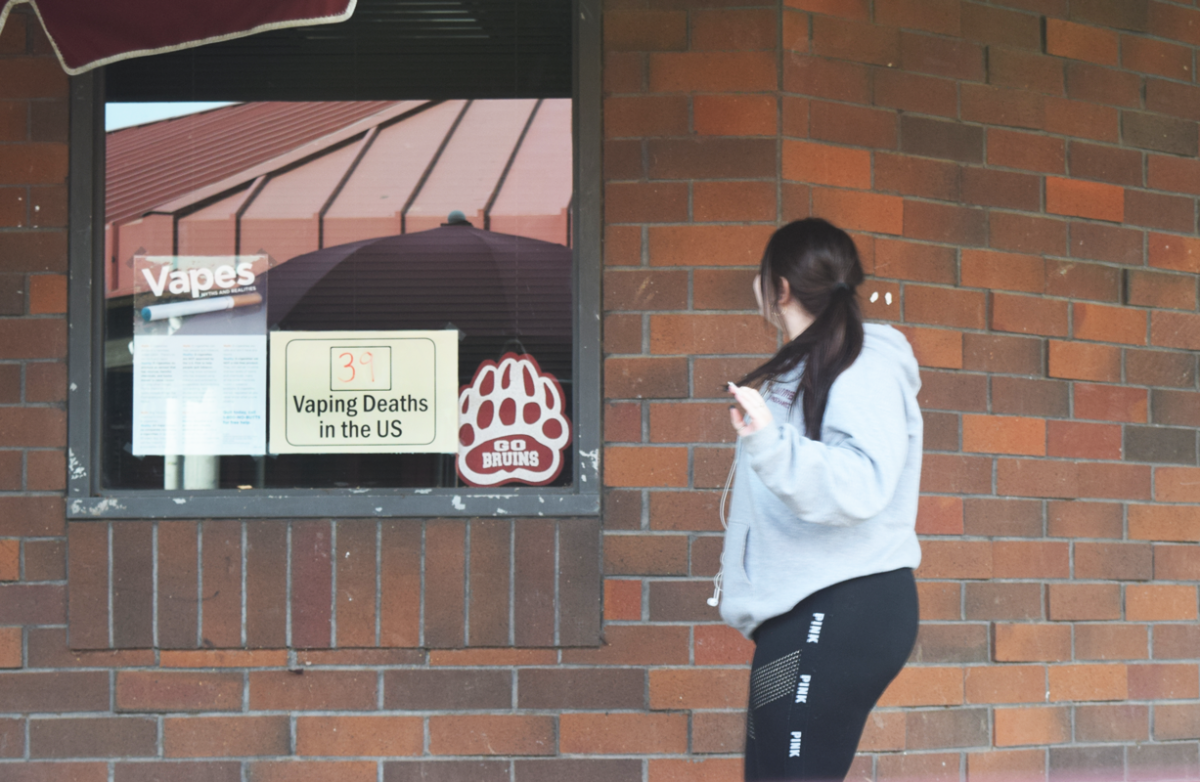The battle against vaping has been raging since 2016. Especially prevalent in schools, campaigns have been established in order to convince teens to resist these destructive tendencies, though these efforts have been somewhat in vain.
Those who know the proven harmful effects of vaping have mostly continued to resist using them, but more and more people are lost to the vaping craze due to peer pressure, the appealing sweet flavors, and to fit in with the ‘cool kid’ crowd. Even with the millions of dollars put into preventing this outbreak, it seems like it all goes to waste. Even as we persist in these campaigns, it’s never enough to convince these stubborn, addicted teens.
Senior Grace McDaniel shared her thoughts on the anti-vaping bandwagon.
“I don’t think it’s necessarily effective, but I don’t think they could be doing very much more,” she said, “I don’t think that what they do to stop vaping is going to help kids unless they know the facts about what it can do to them.”
Senior Jenna LaPlante had a similar stance to McDaniel’s,
“It’s ineffective, it doesn’t work,” she said. “People don’t want to listen.”
Junior Sean Huska had a differing opinion to compared to the two seniors.
“I mean it seems pretty effective, but there are probably things they could change to make it more effective,” he said, “They could limit when people are in the bathroom for 30 minutes – that’s probably one thing.”
Cathy Peterson, Bear River’s Vice Principal, had a more positive input on the issue.
“I think, given the rise of deaths in the country, that people are anxious to get ahold of any information and a lot of education, so it’s more effective now than it was a year ago,” she said.
Even if everyone can’t unanimously agree on the anti-vaping campaign’s effectiveness, most agree it needs some improvements. Some students provided ideas to consider when revising these campaigns.
“I think getting more of the facts out there, even though it’s become more of a common issue,” said McDaniel. “Getting certain numbers and statistics across to kids, especially in Health classes, can be really beneficial. I think flat out telling them not to is not going to change very much. Just getting more details and facts about it out there.”
“I mean you could probably try to [check their] ID when people are buying them from gas stations,” said Huska. “I imagine they’re trying to market to younger people because they know they get them addicted easier.”
Mrs. Peterson expanded on her opinion.
“Since time and memoriam, [teens] never listened to [us] about smoking until they see that we know what we’re talking about,” she said. “[They think] ‘it’s never gonna happen to me, I’m immortal. It’ll happen to somebody else, maybe because they are dumb and they don’t know what they’re doing.'”
As an attempt to decrease vaping usage at Bear River, the staff have placed anti-vaping posters in most of the bathrooms where kids often go to vape. Huska took his stance on how these posters effect the students.
“Yeah, I’ve seen those,” he said. “They probably could be effective if people took into account what they said. They’re kind of funny.”
McDaniel had a somewhat uncertain opinion on the matter.
“I don’t think they’ll be all that effective, but I do know that what they’re doing is going to probably change someone’s mind,” she said, “It’s a possibility; you can’t say they’re going to be worthless, because they might [change someone’s mind], but I don’t see it. They make me laugh, but they probably wouldn’t stop anyone from doing anything.”
LaPlante had a more negative and pessimistic look on the problem.
“They [students] get annoyed that people are trying to tell them what to do,” she said.
Mrs. Peterson described her frustration on the poster’s effectiveness.
“…We have the information and we’re trying to share it,” she said. “ … The Lions Club put together thousands and thousands of dollars to bring in a nationally recognized speaker we presented to all the students. We had a meeting that night for parents and we had nine parents show up. I think it’s disturbing that after the help we offered, [we] only [had] nine parents showed up.”
The anti-vaping campaign isn’t perfect, but a lot of teens are just ignoring it because they’re too stubborn or don’t care enough to listen. With that in mind, we can’t really improve it effectively. At the present, it feels like the best we can do is try to educate the younger generations of the negative effects of vaping. In my personal opinion, one way to really emphasize that vaping is seriously bad for you to my generation is to have field trips to smoking or vaping rehab centers or have those who suffer from serious damage due to smoking in their past present and express the pain and sadness they feel from the mistakes they’ve made. But, whether this will be effective or not, I’m not certain.
Mrs. Peterson expressed her concerns for the students.
“It scares me to death for you guys because none of those 42 [deaths] never thought it would happen to him or her,” she said. ” … [Those deaths ranged from people] from 12 to 70 years old, but the average is in the teens and twenties, which terrifies me. The one thing that Nancy [who’s Nancy?] and I used to do, and we still do, [is] that when we took vape juice from a student, we would look at [the contents]. Two years ago, we couldn’t find any that weren’t .05 percent [nicotine], and now I can’t find one that isn’t 50 percent nicotine.”



































